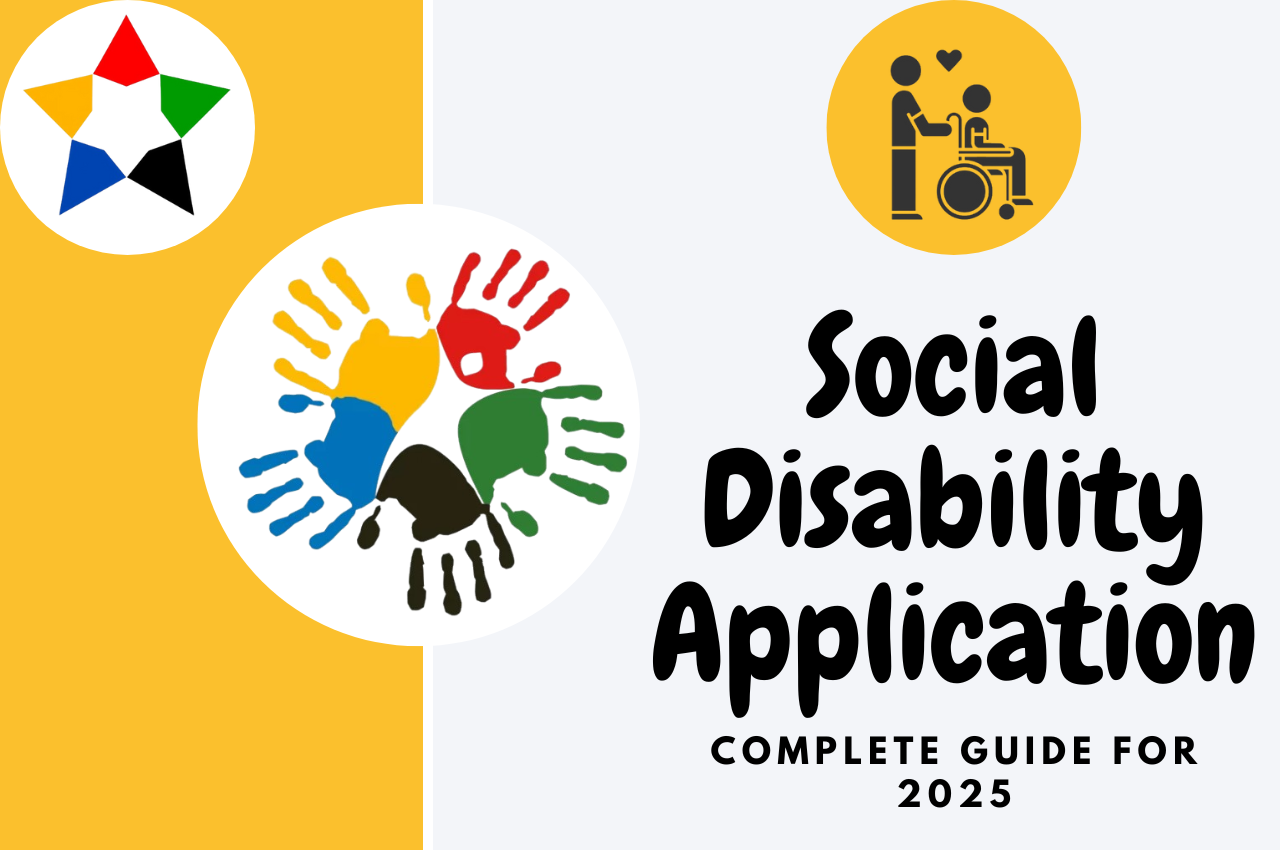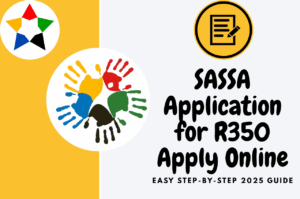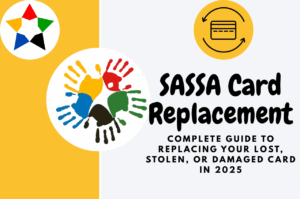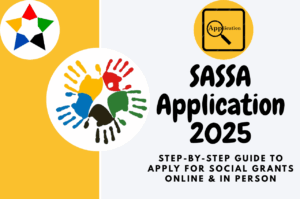If you’re considering a social disability application under the broader SASSA grants system, it’s important to understand how the process works, who qualifies, and what documents you need. This comprehensive guide will walk you through every step—from eligibility criteria to submitting your application and checking your status—so you can confidently access the financial support you deserve in 2025.
Table of Contents
What is a Social Disability Grant?
A social disability grant is a financial assistance program provided by the South African Social Security Agency (SASSA) to support individuals who are medically certified as disabled and unable to work for longer than six months. The grant is aimed at helping people with permanent or temporary disabilities to meet their basic needs and live with dignity.
To receive this support, eligible individuals must go through a social disability application process that includes medical evaluation and a means test to determine financial need.
There are two types of disability grants in South Africa:
- Temporary Disability Grant: For people whose disability lasts between 6 and 12 months.
- Permanent Disability Grant: For people with a disability expected to continue for more than 12 months (Note: this doesn’t mean the grant is for life; regular reassessments may still be required.)
This grant plays a crucial role in reducing poverty and supporting individuals who cannot earn a sustainable income due to health limitations.
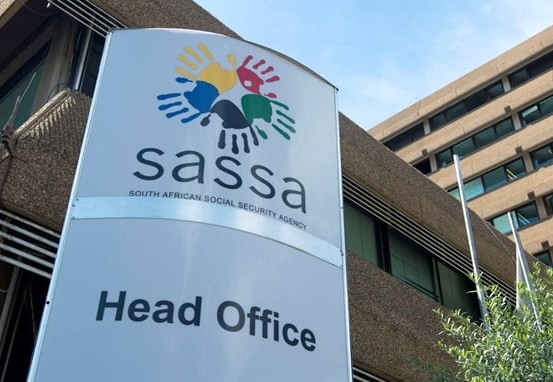
Who Qualifies for a Social Disability Grant?
Before beginning your social disability application, it’s important to understand the eligibility requirements. SASSA has set specific criteria to ensure that the disability grant reaches those who genuinely need financial and medical support.
General Eligibility Criteria:
To qualify for the disability grant in South Africa, you must meet all the following conditions:
- Age Requirement
- You must be between 18 and 59 years old.
- Citizenship or Residency
- You must be a South African citizen, permanent resident, or recognized refugee.
- Medical Assessment
- A state-appointed doctor must assess and confirm that you are disabled and unable to work.
- The assessment must show that your condition will last at least 6 months for a temporary grant or over 12 months for a permanent grant.
- The medical report must be less than 3 months old when submitting your application.
- Means Test
- You must pass a means test to prove that you do not earn more than the allowed income or own assets above a set value.
- As of 2025:
- Single individuals must not earn more than R95,400 annually.
- Married couples must have a combined income of R190,800 annually.
- Asset limits also apply.
- Not Receiving Another Grant
- You cannot receive another social grant for yourself, like the Old Age or War Veteran’s Grant.
- Living in South Africa
- You must be living in South Africa at the time of application.
Common Qualifying Conditions:
While each case is assessed individually, common conditions that may qualify for a disability grant include:
- Physical disabilities (e.g., paralysis, amputations)
- Mental disabilities (e.g., schizophrenia, severe depression)
- Chronic illnesses with disabling effects (e.g., advanced diabetes, epilepsy, HIV/AIDS complications)

Documents Needed for Your Social Disability Application
Submitting the correct documents is one of the most important steps in your social disability application. Missing or outdated paperwork is one of the main reasons applications are delayed or rejected. Make sure to gather everything you need before visiting a SASSA office.
Required Documents Checklist
Below is a list of documents you must have to apply for a disability grant in South Africa:
- South African Identity Document (ID)
- A green barcoded ID, smart ID card, or valid temporary ID.
- If you’re a refugee, a valid refugee permit and Section 24 certificate is required.
- Medical Assessment Report
- Must be completed by a state-appointed doctor.
- Should clearly state the nature of your disability and how long it is expected to last.
- Report must be less than 3 months old at the time of application.
- Proof of Residence
- A utility bill, tribal letter, or formal lease agreement confirming where you live.
- Proof of Income
- Recent bank statements (last 3 months).
- Payslips (if previously employed) or UIF documents if you were recently retrenched.
- If married, you’ll need your spouse’s proof of income too.
- Marriage Certificate (if married)
- Proof of Assets
- Any documents showing ownership of property, vehicles, or other valuable items.
- Affidavits or Sworn Statements
- If certain documents are missing or you’re unemployed, you may need to provide a signed affidavit explaining your situation.
- Previous SASSA Grant Records (if reapplying or switching from another grant)
Optional Supporting Documents:
- Referral letters from clinics or hospitals
- Disability-related prescriptions or treatment records
- Letters from employers, if your disability affects your job
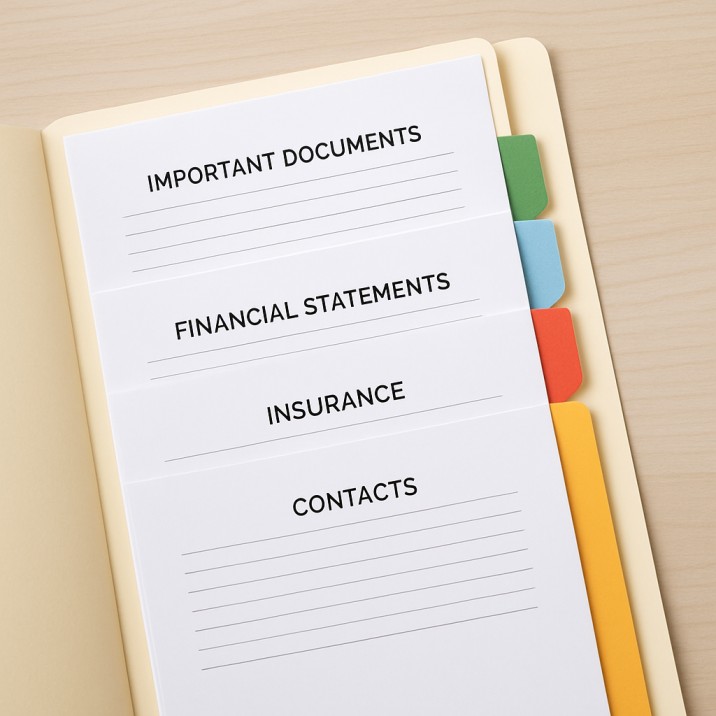
Step-by-Step Guide: How to Apply for a Social Disability Grant
Applying for a disability grant may seem overwhelming, but if you follow each step carefully, your social disability application process will be much smoother. Below is a practical, step-by-step guide to help you get started.
Step 1: Prepare All Required Documents
Before you visit your local SASSA office, make sure you have:
- A valid ID or refugee permit
- A recent medical report from a state doctor
- Proof of income, residence, and assets
- All other supporting documents
Step 2: Visit Your Nearest SASSA Office
You must apply in person at your closest SASSA office. You cannot apply online for a disability grant at this time. If you are too sick or disabled to travel, a family member or caregiver can apply on your behalf with a letter from you and a medical note explaining your condition.
Step 3: Complete the Application Form
- A SASSA officer will assist you in filling out the application.
- The form is free, and no one should charge you for it.
- You’ll be asked questions about your identity, health, finances, and living situation.
Step 4: Undergo a Medical Assessment
- You’ll be referred to a state-appointed doctor for a free medical evaluation.
- The doctor will assess the severity and duration of your disability.
- Their report will be submitted directly to SASSA.
Step 5: Submit the Application and Get a Receipt
- Once the form is completed and documents submitted, you’ll receive a receipt or reference number.
- Keep this safe—it’s your proof that you applied.
Step 6: Wait for Feedback
- It may take up to 3 months to receive a decision.
- If approved, the grant will be back-paid from your application date.
- If declined, you’ll receive a written reason and instructions on how to appeal.
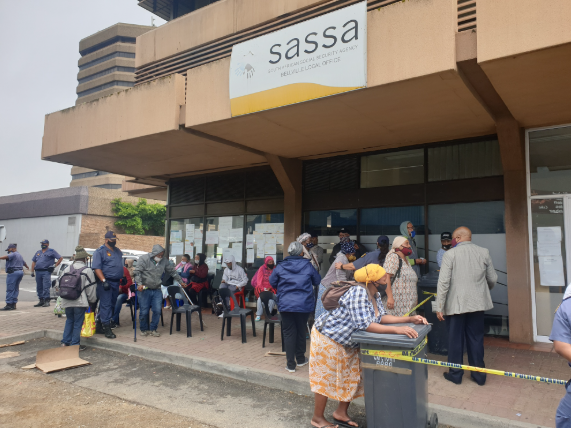
Social Disability Application Status – How to Check
After submitting your social disability application, it’s normal to want updates. SASSA allows applicants to check their grant status through several official channels. This helps you stay informed and take quick action if there are delays or issues.
Below are the main ways to track your application status:
1. Call the SASSA Toll-Free Number
You can contact the SASSA call centre to check your application status.
- Phone number: 0800 60 10 11 (Toll-free)
- Be ready to provide:
- Your South African ID number
- Reference number (from your application receipt)
- Personal details (for verification)
2. Visit Your Nearest SASSA Office
If you prefer in-person assistance:
- Bring your ID and receipt.
- A SASSA officer will check your file and provide a status update.
- This option is useful if your application is taking longer than expected.
3. Use SASSA WhatsApp or Online Tools
Currently, SASSA’s WhatsApp and online platforms are more focused on SRD grants. However, it’s still worth checking if disability grant updates become available online.
- WhatsApp: Add 082 046 8553 and follow the prompts.
- Website: https://sassa.gov.za (look under the Disability Grant section for contact info or announcements)
4. Ask for SMS Notifications (If Available)
In some cases, SASSA may send an SMS to notify you of your application’s outcome. Ensure your contact details are correct when applying.
What If There’s a Delay?
If it’s been more than 90 days with no update:
- Revisit the SASSA office with your receipt and ask for a follow-up.
- Confirm that your medical report and documents were correctly submitted.
- Check if you need to submit any additional paperwork.
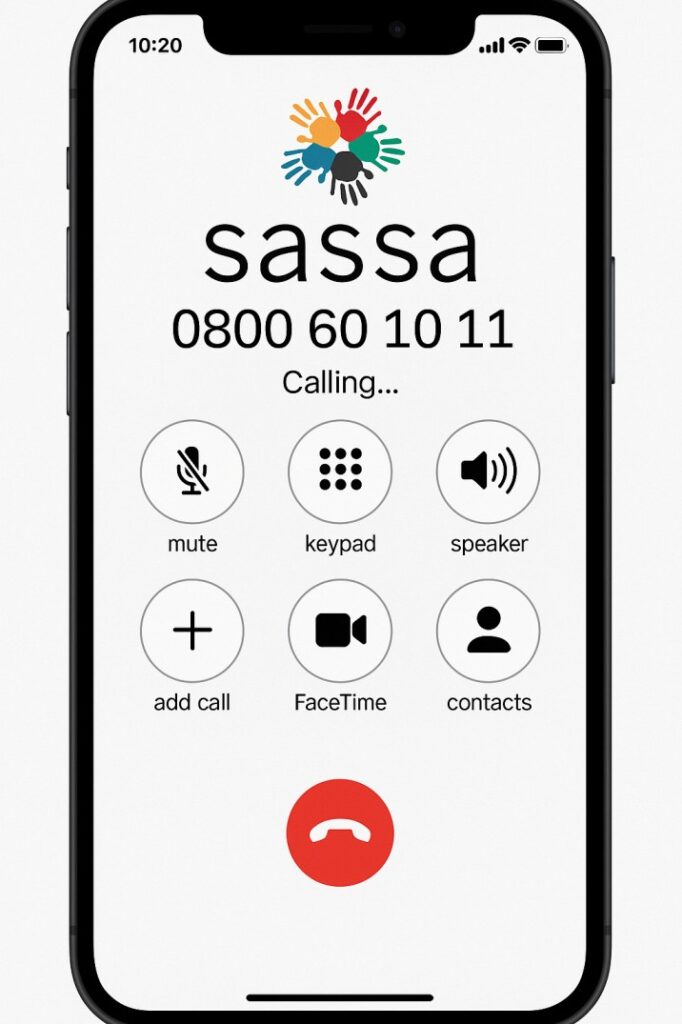
Common Reasons for Delays or Rejections
Submitting your social disability application does not always guarantee immediate approval. Many applicants face delays or even rejection due to avoidable mistakes or missing information. Understanding these common issues can help you prepare better and reduce the chance of setbacks.
1. Incomplete or Missing Documents
If you fail to submit all the required documents—especially your ID, medical report, or proof of income—SASSA may put your application on hold or reject it entirely.
2. Outdated Medical Report
Your medical assessment must be conducted by a state-appointed doctor and be less than 3 months old at the time of submission. An expired report leads to automatic rejection.
3. Failing the Means Test
SASSA uses a means test to determine if you qualify financially. If your income or assets exceed the allowed limits, your application will be declined.
- For example, if you’re single and earn more than R95,400 per year, you do not qualify.
4. Incorrect or Mismatched Information
Discrepancies between your ID, bank statements, or application form (e.g., different surnames, outdated contact details) may cause processing errors or delays.
5. Medical Condition Not Meeting Criteria
Not all health conditions qualify for a disability grant. If the doctor assesses that your condition doesn’t meet the required severity or duration, the grant may be declined.
6. Duplicate Applications
Submitting multiple applications before receiving a response can slow down the process or confuse the system.
7. Technical or Administrative Delays
Sometimes the delay is not your fault. Internal backlogs, public holidays, or system errors at SASSA may slow down the review process.
What to Do if You’re Rejected:
- Carefully read the rejection letter to understand the reason.
- Gather missing or corrected documents.
- Begin the appeal process (covered in the next section).
Appealing a Rejected Application
If your social disability application is rejected, you still have the right to challenge the decision. SASSA provides an official appeals process that allows you to request a reconsideration of your case. Many applicants who are initially rejected are later approved—so don’t lose hope.
Step-by-Step Guide to the Appeals Process
1. Read the Rejection Letter Carefully
SASSA will send you a letter explaining why your application was declined. The reason given will help you decide how to approach your appeal.
2. Gather Corrected or Additional Documents
If your application was rejected due to missing or incorrect information, prepare the following:
- Updated or missing documents (e.g., valid medical report, proof of income)
- Any supporting evidence (e.g., referral letters, treatment records)
3. Write a Formal Appeal Letter
Include the following details in your appeal:
- Full name and ID number
- Reason for your appeal
- Attach all supporting documents
- Clearly explain why you believe the decision was incorrect
4. Submit Your Appeal Within 90 Days
You must submit your appeal within 90 days of receiving the rejection letter. Late appeals may not be accepted.
- Submit it in person at your nearest SASSA office.
- Ask for a stamped copy or written confirmation as proof of submission.
5. Wait for the Appeal Outcome
After reviewing your appeal, SASSA or the Independent Tribunal will respond with a final decision. This process can take a few weeks to months.
If Your Appeal is Still Rejected:
If your appeal is unsuccessful, you may consider legal advice or reach out to organisations that support grant beneficiaries, such as:
- Black Sash
- Legal Aid South Africa
How Much is the Disability Grant in 2025?
If you’re considering a social disability application in South Africa, it’s important to know the current grant amount to understand the financial support available. As of July 2025, the Disability Grant has been increased to R2,315 per month for eligible individuals aged 18 to 59 years.
Payment Schedule
SASSA has released the grant payment schedule for July 2025, detailing payment dates for older persons, disability, and children’s grants.
Beneficiaries can expect payment on the following days:
- Older persons – Wednesday, 2 July
- Disability grants – Thursday, 3 July
- Children’s grants – Friday, 4 July
Funds will remain in recipients’ accounts once deposited, so there’s no need to rush to withdraw on payday, SASSA has advised.
Payment Methods
The Disability Grant is paid through one of the following methods: South African Government
- Cash at a specific pay point on a particular day
- Electronic deposit into your bank account, including Postbank (note that the bank may charge you for the service)
- An institution not funded by the State, such as a home for people with disabilities.
If you are under 18 and need permanent care due to your disability, your primary caregiver can apply for a Care Dependency Grant.
Eligibility Criteria
To qualify for the Disability Grant, applicants must meet certain criteria, including:
- Age: Between 18 and 59 years
- Income: Must not exceed R86,280 per year for a single person or R172,560 per year for a married couple.
- Assets: Must not exceed R1,227,600 for a single person or R2,455,200 for a married couple.
- Medical Assessment: Must be assessed by a state-appointed doctor confirming the disability.
Frequently Asked Questions (FAQs)
1. What is a social disability application?
A social disability application is the process of applying for a disability grant from SASSA in South Africa. It involves submitting medical reports, income proof, and personal documents to prove that you are unable to work due to a disability.
2. Who can apply for a disability grant in South Africa?
You must be a South African citizen, permanent resident, or refugee between the ages of 18 and 59, with a medically certified disability and limited income or assets.
3. How much is the disability grant in 2025?
As of July 2025, the disability grant is R2,315 per month, subject to change with annual budget reviews.
4. Can I apply for the disability grant online?
No. The social disability application must be completed in person at a SASSA office. If you are too ill to travel, someone can apply on your behalf with the right documentation.
5. How long does it take to get approved?
It can take up to 3 months to process your application. If approved, payment will be backdated to the date of your application.
6. What happens if my application is rejected?
If your application is declined, you will receive a written reason. You have the right to appeal within 90 days, by submitting a written request and any missing or corrected documents.
7. Can I receive another grant while getting the disability grant?
No. You cannot receive another personal SASSA grant, such as the old age grant, at the same time as the disability grant. However, your household may still receive other grants (e.g., child support).
Conclusion
Applying for a social disability grant can provide vital financial support to individuals facing long-term health challenges. Understanding the social disability application process, eligibility requirements, and necessary documents is essential to increase your chances of approval.
Remember to prepare thoroughly, submit all required paperwork on time, and follow up on your application status. If your application is rejected, don’t be discouraged—appealing is your right, and many applicants succeed on appeal.
By staying informed and proactive, you can navigate the system more confidently and access the support you need to live with dignity. If you or someone you know qualifies, start your social disability application today and take a positive step toward financial relief.

